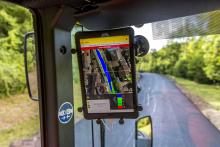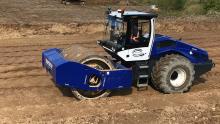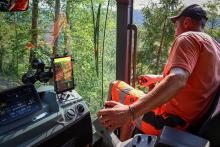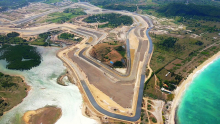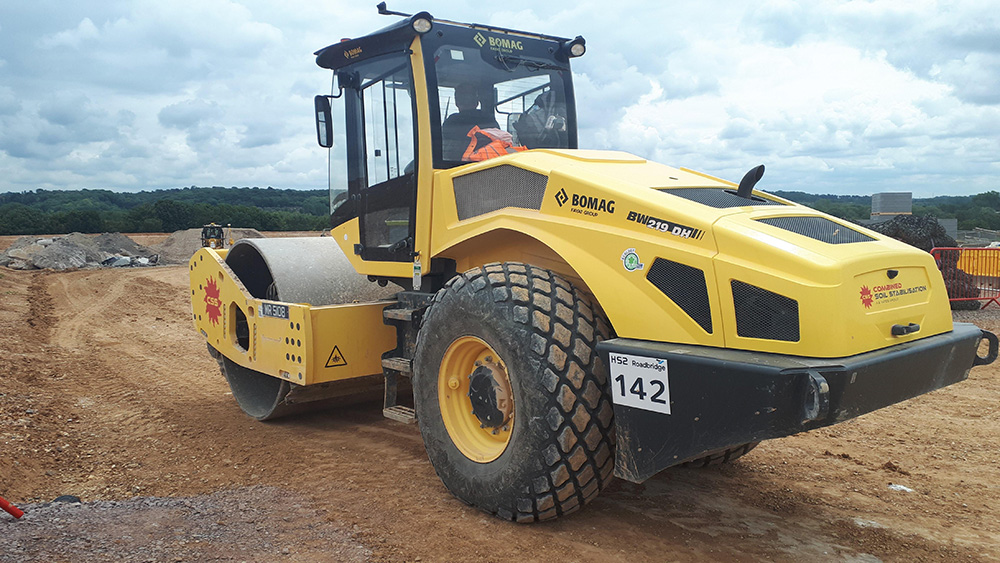
Subsidence-free subgrade
Great Britain is the birthplace of rail transport. The world's first line opened there in September
1825 and 64,000 stone sleepers with a wooden substructure were laid during the construction of the 40-kilometre line.
The substructure plays a key role in the railway system. It constitutes the foundation. The forces exerted by the speeding trains are first transferred to the track bed and then dissipated via the substructure. Sufficient dimensioning of the load-bearing capacity is therefore required. This is especially true if the track runs through cuts or over embankments filled with excavation material. The effects of a non-load-bearing capacity subgrade would be catastrophic. In general, the higher the speed, the higher the load on the track bed.
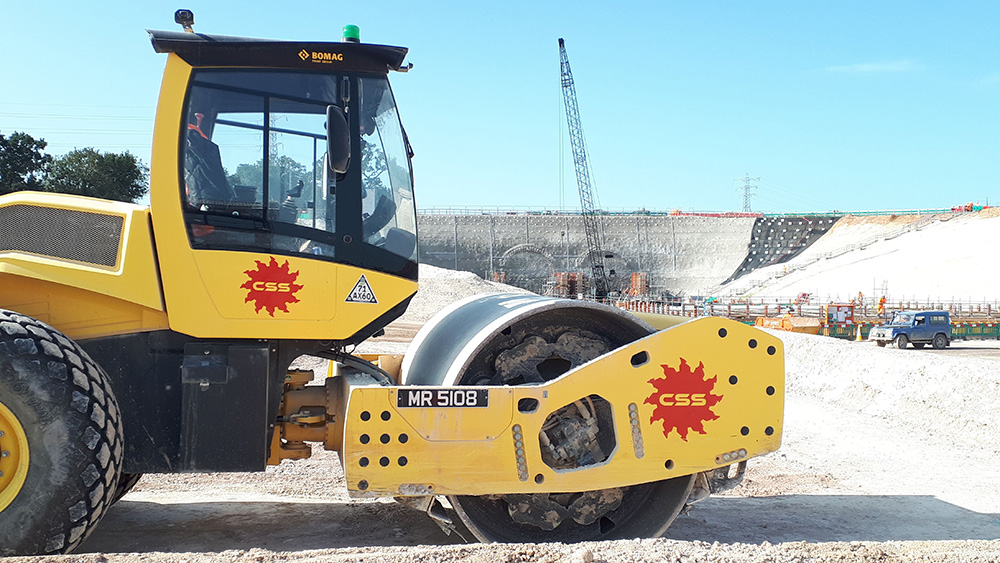 Almost all new high-speed lines use a concrete superstructure, the so-called slab track. This requires a subgrade that is virtually subsidence-free and can only be guaranteed with the use of state-of-the-art compaction technology.
Almost all new high-speed lines use a concrete superstructure, the so-called slab track. This requires a subgrade that is virtually subsidence-free and can only be guaranteed with the use of state-of-the-art compaction technology.
Smart Bomag technology
The majority of the companies contracted to carry out earthworks in the project rely on EVIB value determination for Continuous Compaction Control (CCC) and, at the same time, on BOMAP as their mapping and data transmission technology.
Also in London, BOMAG's BW 213 DH-5 is currently in operation for many rental companies and in particular L Lynch Plant Hire & Haulage Ltd. The single drum roller is equipped with TERRAMETER, the rolling test laboratory for earthworks. The BOMAG measuring system can measure the EVIB stiffness in MN/m² and makes use of the interaction between the acceleration of the vibrating drum and the degree of soil stiffness. The driver receives not just a indication but a specific, absolute measured value and can work directly towards the degree of stiffness specified by the client. The EVIB value is directly related to the EV1/EV2 values of the plate load bearing test.
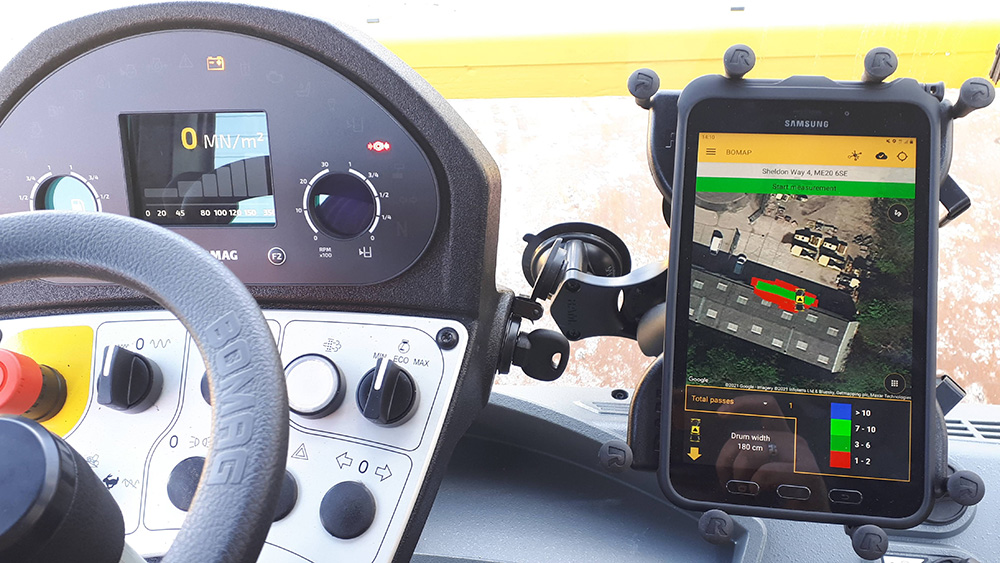 Here, the EVIB value is determined continuously with a measurement density of only 10 cm and collected over the entire drum width. This makes it possible to detect almost any weak spot and reduce the number of static load plate measurements to a minimum. As a result, situations where people have to perform a static measurement in the middle of the construction site, and thus in a potential danger zone, can be reduced. Because this is also a safety factor that must always be considered: workers and rollers should never get in each other's way.
Here, the EVIB value is determined continuously with a measurement density of only 10 cm and collected over the entire drum width. This makes it possible to detect almost any weak spot and reduce the number of static load plate measurements to a minimum. As a result, situations where people have to perform a static measurement in the middle of the construction site, and thus in a potential danger zone, can be reduced. Because this is also a safety factor that must always be considered: workers and rollers should never get in each other's way.
"People Plant Interface is one of the key challenges we've got because that's the potential risk between machines coming into contact with people", says Chris Matthew, Strategic Manager, Flannery Plant Hire.
To achieve optimal compaction results quickly and at the same time save costs in the project, Lynch's single drum rollers were equipped with a tablet running the BOMAP app. BOMAP shows the passes in real time and draws a live compaction map of the job site. Compaction progress is clearly visualised by a colour scheme. The app works entirely without special hardware and can be used regardless of manufacturer.
"BOMAG thinks "outside the box" and offers solutions that are second to none in the industry. For example, we have to collect and manage large amounts of data, such as the number of passes. Thanks to BOMAP in particular, we were able to significantly increase productivity in the project“, says James Barden, HS2 Projects Manager; L Lynch Plant Hire & Haulage Ltd."
Green is go
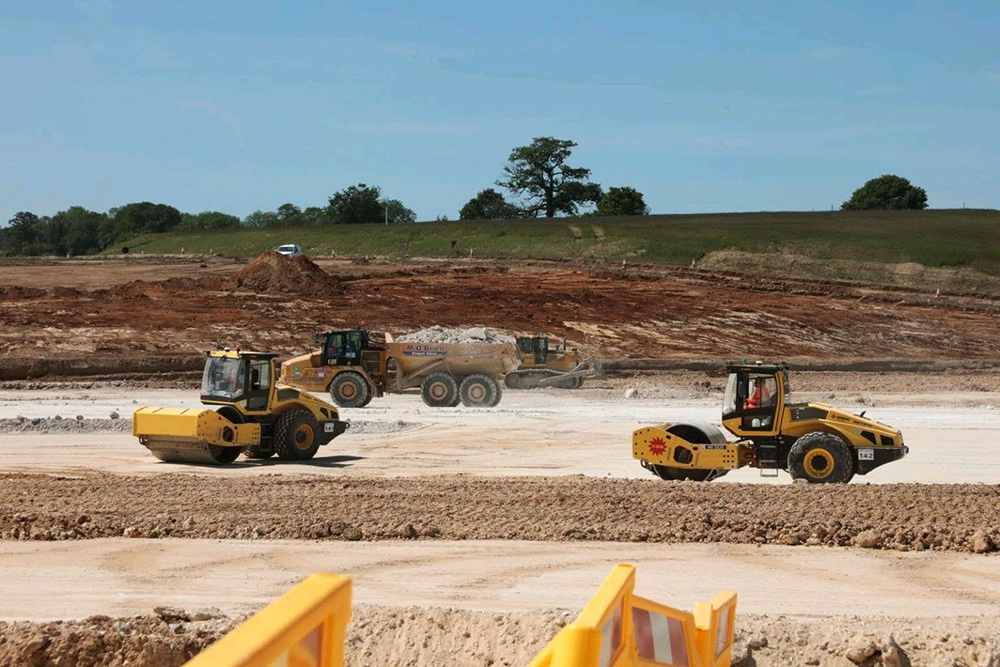 The roller drivers familiarised themselves with the system in just 15 minutes. Once the target parameters had been entered, only one thing counted: when is the area green?
The roller drivers familiarised themselves with the system in just 15 minutes. Once the target parameters had been entered, only one thing counted: when is the area green?
If further compaction is required, with one touch, BOMAP displays the most recent work section on the map. To aid operators Green areas mean the required compaction has been achieved, and if an area has mistakenly been over-compacted, it is shown in Blue and if under in Red.
The EVIB value can also be displayed immediately as a map. Equally important: all data, including the EVIB value, can be saved and used at any time for analysis, documentation or as proof of Continuous Compaction Control. This know-how can be used to optimise the number of passes required in the project and reduce the total number of unnecessary passes to a minimum. For one company on HS2, SCS Railways, this has reduced passes, reducing fuel and CO2 emissions, by 25%.
Thanks to the BOMAP CONNECT and JOBLINK options, as well as the "Supervisor's Live View Mode", the project manager is always in the picture. Even if not directly present, the manager knows exactly what is happening on the construction site, what still needs to be planned, and where compaction is still required. The live data is transmitted via the mobile network. If the transmission signal in some sections of the construction site is too weak, the values obtained can also be saved locally in the app. Time-consuming and cost-intensive rework and replanning are, therefore, a thing of the past and areas that are not yet sufficiently compacted can be identified immediately.
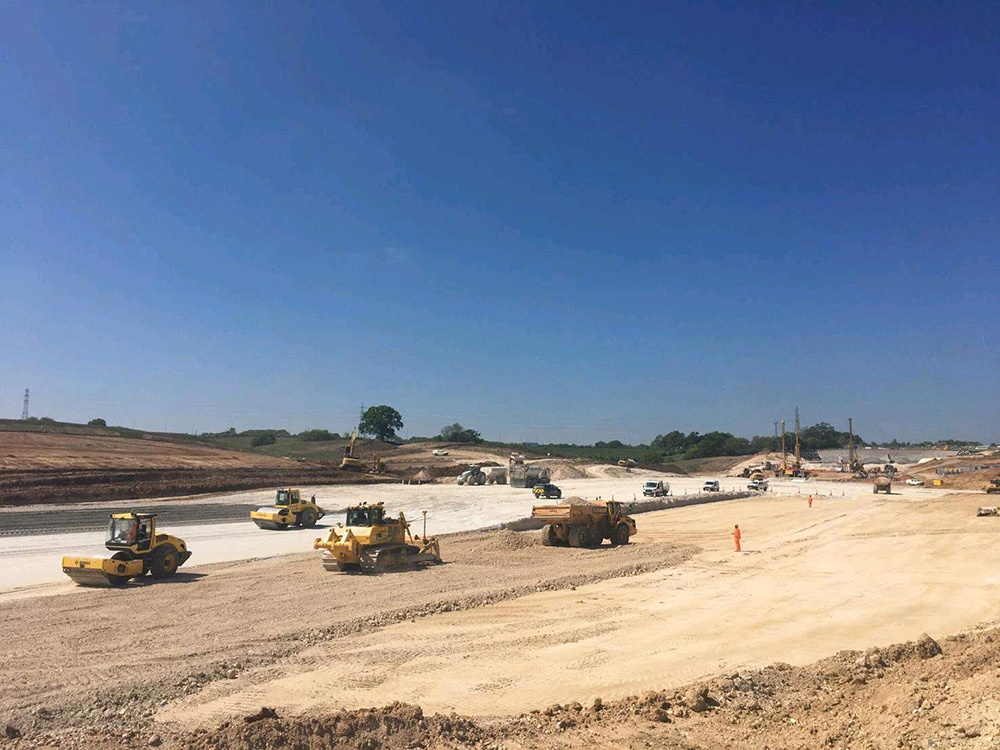 "There’s certainly a lot less re-work involved because you are investigating potential weak areas from the BOMAP report“, says Steve Dunn, Southern Region Managing Director, Combined Soil Stabilisation Ltd."
"There’s certainly a lot less re-work involved because you are investigating potential weak areas from the BOMAP report“, says Steve Dunn, Southern Region Managing Director, Combined Soil Stabilisation Ltd."
James Barden of L Lynch Plant Hire & Haulage Ltd is proud to have received two Blue Awards from his client Costain for the work carried out on the HS2 Main Works in 2021. The award not only takes into account the quality and value of the work on site, but also reflects the performance of the whole company: the competence of the staff, the solutions from technical support, the commitment to health and safety and, of course, the quality of the fleet. And that includes single drum rollers from BOMAG - fitted with TERRAMETER and BOMAP and equipped with pioneering systems for Continuous Compaction Control (CCC).
Content produced in association with Bomag

